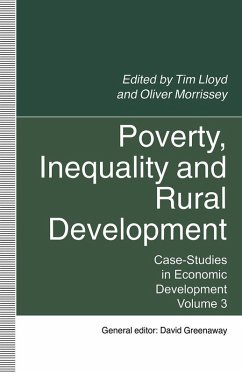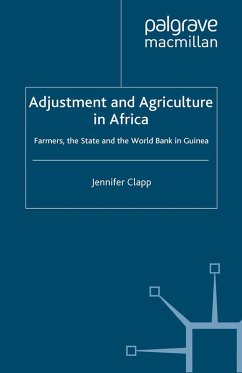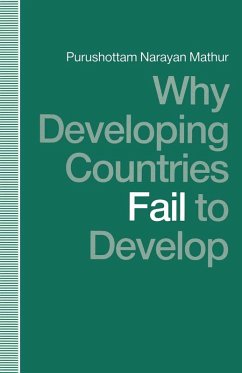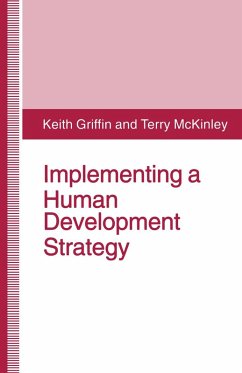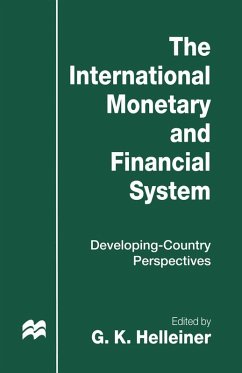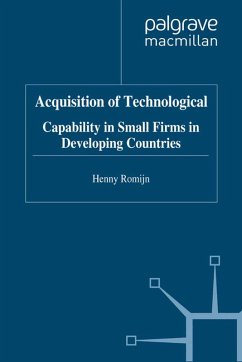
Acquisition of Technological Capability in Small Firms in Developing Countries (eBook, PDF)
Versandkostenfrei!
Sofort per Download lieferbar
112,95 €
inkl. MwSt.
Weitere Ausgaben:

PAYBACK Punkte
56 °P sammeln!
An authoritative examination of how small firms in developing countries acquire technological capability - the knowledge and skills required to operate technology effectively and to adapt it to local conditions. It fills a gap in the established literature on technological capability, which has neglected the small-scale sector in spite of the important role it plays in employment generation. The author develops a methodology for a quantitative assessment of the learning process, using case material from the small-scale capital goods sector in Pakistan's Punjab Province.
Dieser Download kann aus rechtlichen Gründen nur mit Rechnungsadresse in A, B, BG, CY, CZ, D, DK, EW, E, FIN, F, GR, HR, H, IRL, I, LT, L, LR, M, NL, PL, P, R, S, SLO, SK ausgeliefert werden.




